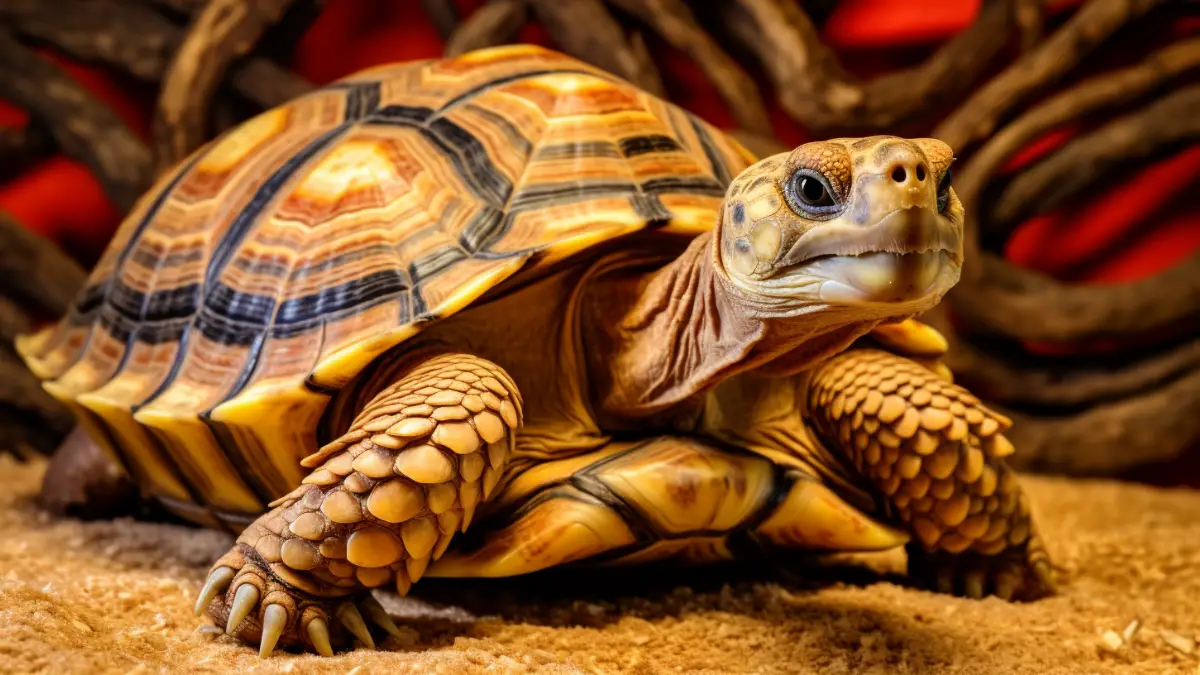Tortoise Eyes Closed: Should You Be Worried?
Tortoises sometimes keep their eyes closed due to natural reasons. But sometimes, the closed-eye issues orient due to physical problems. Nevertheless, the problem needs to be addressed quickly to ensure overall well-being.
So, why are tortoise eyes closed? Should you be worried? Your pet tortoise’s eyes are closed due to
- Infection in the eyes
- Post-hibernation anorexia
- Eyelid issues
- Shortage of vitamin A
- Orientation of abscess, etc.
Additionally, some of these little creatures used to close their eyes due to their natural habit.
In this article, we detail all these causes of tortoise closed eyes along with solutions. We also provide some important tips to prevent this issue from occurring in the solution section.
Table: Reasons and Solutions for Why Tortoise Eyes Closed
Contents
The following table shows the reasons and solutions behind your tortoise’s eyes closed.
| Reasons | Solutions |
|---|---|
| Lack of humidity | Increase ventilation in the enclosure |
| Lack of Vitamin A | Provide calcium-based oral supplement |
| Post-Brumation Anorexia | Use of esophagostomy tube |
| Post-Hibernation Anorexia | Use of esophagostomy tube |
| Swollen eyelids | Provide rehydration therapy |
| An issue with the Third Eyelid | Take it to the vet |
| Stucked Plants | Remove the plant particle |
Why Tortoise Eyes Closed: Causes and Solutions in Detail
In this section, we dig in deep with the most prominent causes of tortoise closed eyes and the possible solutions to the issue.
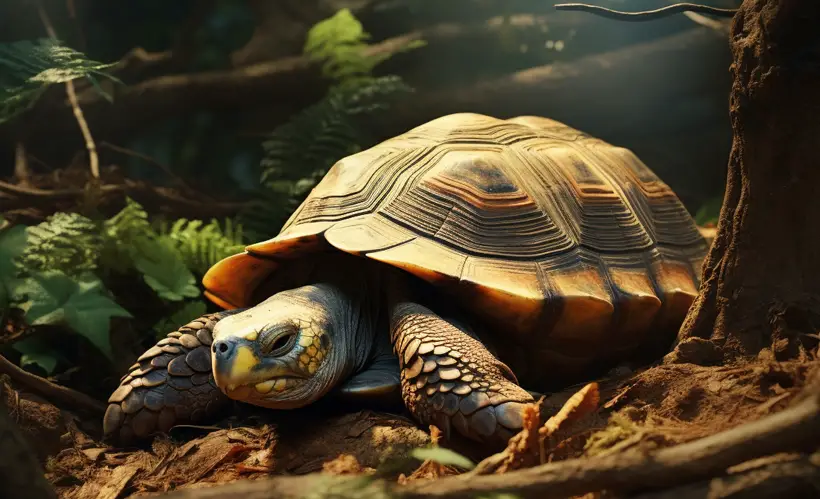
1. Lack Of Humidity In The Vivarium
Sometimes, your tortoise just likes to close its eyes throughout the daylight. Here, the most probable cause is that the respective enclosure is not retaining an adequate level of humidity.
The lack of humidity triggers dryness within the surroundings, and the pet’s eyes also suffer from the respective dryness hosting discomfort into its eyes. Following this, the tortoise keeps its eyes closed to maintain the moisture level inside the system.
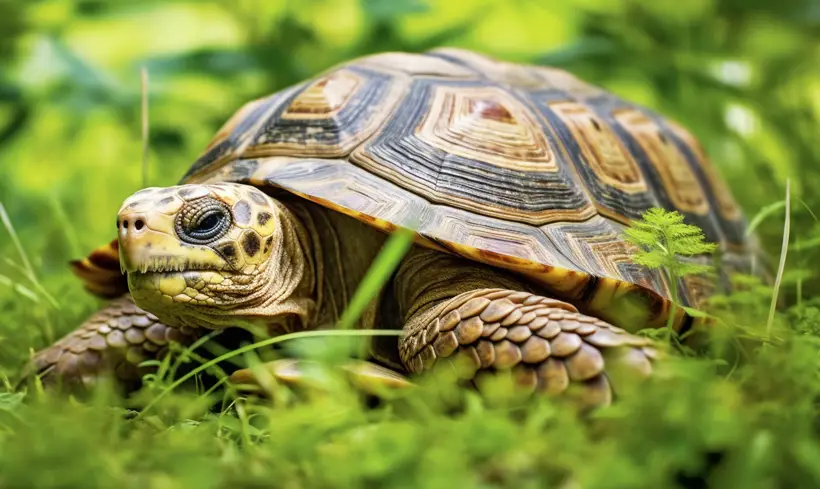
Solutions
Below are the solutions to this issue.
- Consider bathing your tortoise more frequently.
- Modify the pet’s enclosure to ensure adequate airflow within the living space.
- Keeping your pet tortoise in a sealed container with proper ventilation is also better.
2. Deficiency in Vitamin A
Deficiency in vitamin A, also known as hypovitaminosis A, can force the tortoise to keep its eyes closed. In this case, the liver fails to store vitamin A and obstructs the gradual depletion of the tortoise’s body growth.
As a result, the pet’s eyes get swollen, and eventually, purulence starts to discharge. This whole context forces the tortoise to keep its eyes closed to exclude this discomfort.
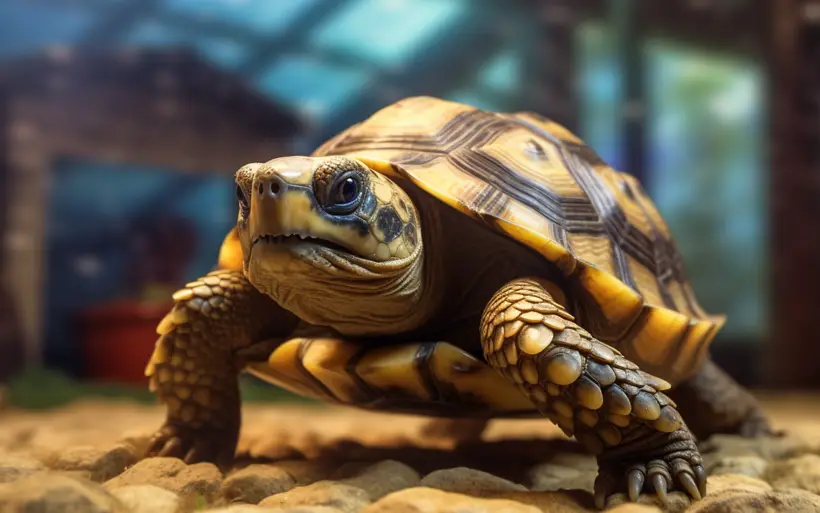
Solutions
The following are the solutions to this issue.
- Provide a calcium carbonate-based oral supplement free from phosphorus ground calcium powder.
- Feed your tortoise more with dark, leafy green, yellow, or orange vegetables.
3. Post-Brumation Anorexia
Incorporating brumation, a hibernation-like state, is a natural thing for tortoises. In this process, the creature stores fat reserves and reabsorbs water in the bladder.
So, when the tortoise passes through the brumation, it naturally produces mucus to maintain moisture around their eyes. This mucus is a sticky substance that obstructs the tortoise’s eyes from opening.
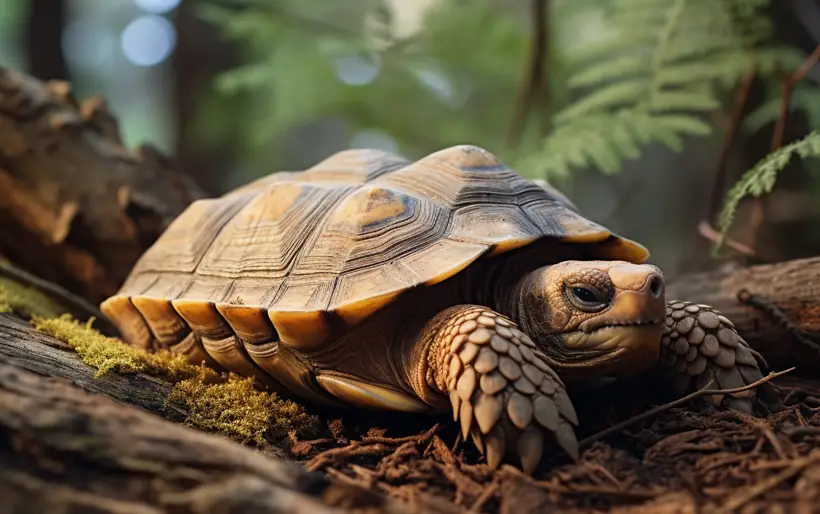
Solution
Here, the best solution is to insert an esophagostomy tube and provide long-term oral fluids, nutritional support, or oral medication. It helps in reducing the impact of post-brumation anorexia.
4. Post-Hibernation Anorexia
Hibernation is a natural phenomenon of the tortoise. If it receives disturbances in the hibernation process, it experiences post-hibernation anorexia and cannot open its eyes.
In general, after awakening from hibernation, it feels so weak that it showcases no interest in drinking and eating for at least 48 hours. These behavioral characteristics trigger weakness. And the creature cannot get enough energy to keep its eyes open.
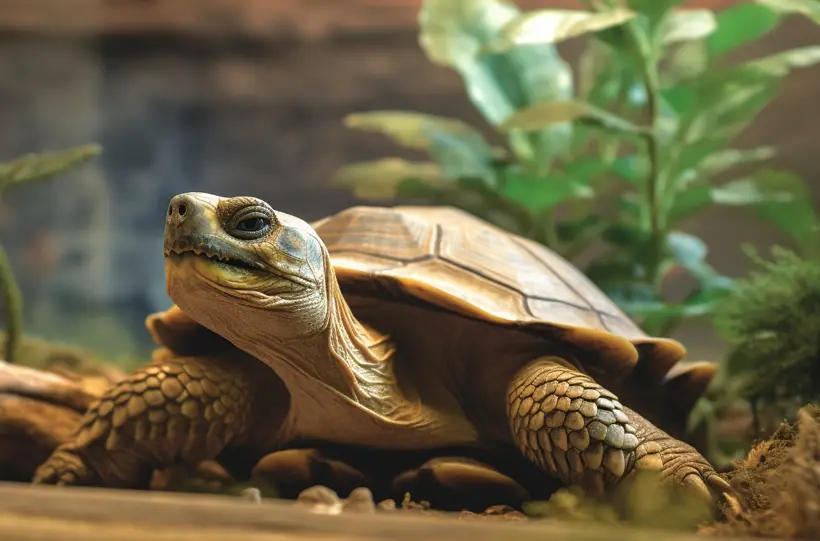
Solution
Treatment of this case is the use of an esophagostomy tube. In this process, an esophagostomy tube, known as a slender rubber conduit, is carefully implanted through the neck’s skin into the esophagus.
As a result, it generates a muscular passageway connecting the mouth to the stomach. Following this, this tube facilitates direct food delivery to the stomach, eliminating the need to pass through the mouth and the back of the throat.
However, we suggest a qualified veterinarian must perform this procedure.
5. Swollen Eyelids
Due to infection, dehydration, deficiency in vitamin A, or post-hibernation anorexia, your shelled companion’s eyelids can get swollen. And for this, it won’t be able to open its eyes fully or partially.
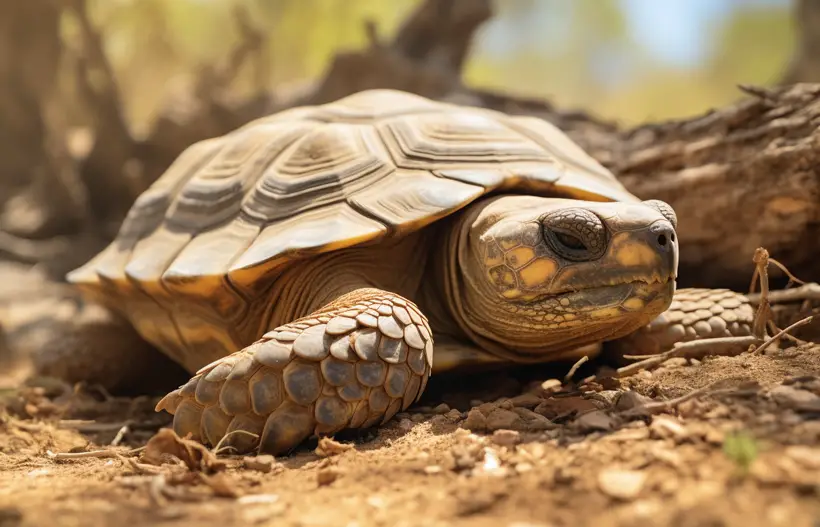
Solution
The following are some effective resolving approaches.
- Initiate rehydration therapy. Soak your pet over 2-3 days and monitor the swelling condition.
- If these soaks have no improvement, provide antibiotics after consultation with the vet.
Check out this YouTube video to know more:
6. Issues with the Third Eyelid
Tortoise has a third eyelid, which is also known as the nictating membrane. It sweeps over the eye’s surface during blinking to ensure that no dust or dirt particle resides on the surface.
During the brumation, the eyes are closed longer, which hosts mucus or initiation of drying content in the third eyelid. Following this, your pet keeps its eyes closed to avoid associated discomfort.
Solution
In general, after overcoming post-brumation, this issue usually goes out slowly, and the tortoise starts to open its eyes eventually. However, if it is still persistent even after 2-3 weeks; take the pet to a vet.
7. Stucked Plants
Plant pieces can get stuck into the tortoise’s eyes while eating the plants or moving through the outside bushes. It makes the creature not feel good and as a resolution, it prefers to close its eyes.
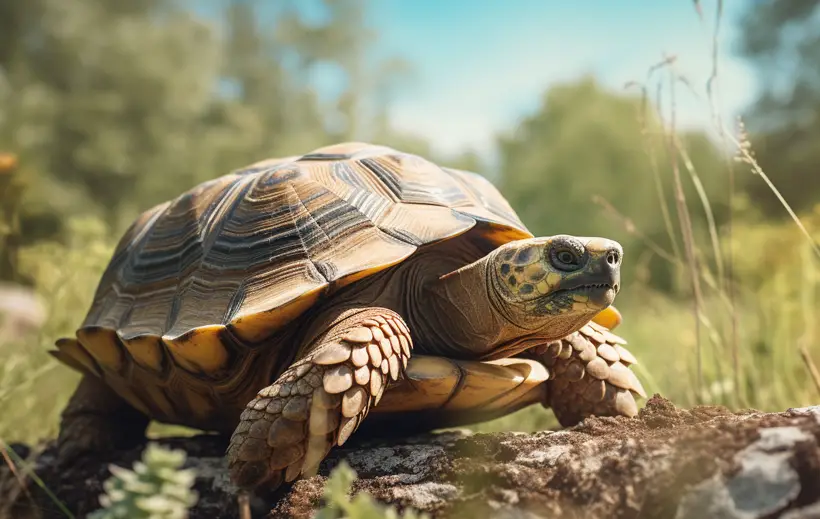
Solution
Put very light, warm water in a dropper on the eye surface drop-by-drop. It will soften the plant particles, and you can remove them easily.
FAQs
Here, we answer some of the most common questions regarding tortoise eyes.
Yes. the basic treatment approaches like rehydration therapy and environmental adjustments you can do at home. However, consulting a veterinarian is recommended for specific issues like the use of an esophagostomy tube.
Normal closed eyes are seen in tortoises during rest or basking, while a problematic resting eye is persistent. The problematic resting eye is usually accompanied by signs like changes in appetite or behavior.
Yes, tortoises can experience eye injuries or scratches. These usually happen when roaming through rough terrain or encountering other objects. In such cases, it’s crucial to consult a vet promptly for appropriate treatment.
Final Words
Understanding the behavior of your tortoise companion is crucial to maintaining its health and well-being. So, if you see your tortoise eyes closed for a longer period, you should worry about it. Vitamin A deficiencies, post-brumation challenges, third eyelid problems, etc. factors can initiate this issue.
Finally, it is very important to ensure close monitoring of its hibernation and brumation processes to reduce the chance of closed-eye ignition. Also, you must consult the vet regularly. We hope that our guide helped you to keep your pet healthy.

